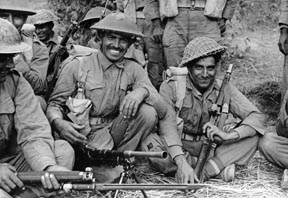 BLOOMINGTON, IN: The Indiana University and Bloomington communities will come together at 3 p.m. December 2 in the Indiana Memorial Union for “What Did the Great War Mean to Indians?,” a lecture on the significance of World War I for the Indian Army and in particular for its role in the battles at the Somme and Verdun.
BLOOMINGTON, IN: The Indiana University and Bloomington communities will come together at 3 p.m. December 2 in the Indiana Memorial Union for “What Did the Great War Mean to Indians?,” a lecture on the significance of World War I for the Indian Army and in particular for its role in the battles at the Somme and Verdun.
The talk is free and open to the public and will take place in State Room East of the Indiana Memorial Union, followed by a reception in State Room West.
The lecture will be presented by Rajendra M. Abhyankar, professor of practice in the IU School of Public and Environmental Affairs.
Before coming to IU, Abhyankar was the Indian secretary of external affairs and served as Indian ambassador to the European Union, Belgium and Luxembourg, Azerbaijan, Turkey, Syria and Cyprus. He was also the consul general of India in San Francisco.
“On the occasion of the centennial, we are exploring many different aspects of the war, not just its historical causes,” said Andrea Ciccarelli, coordinator of “World War I: 100 Years,” IU Bloomington’s 2014-15 academic year exploration of the Great War. “Our intention is to examine the war’s effects and its legacy for all the countries involved. Many of these
countries, at the time were under the rule of European colonial powers. Ambassador Abhyankar’s lecture focuses on one of the major events related to this historical legacy, as more than 1 million Indian soldiers fought in the war,” she added.
Surendra Ullal






